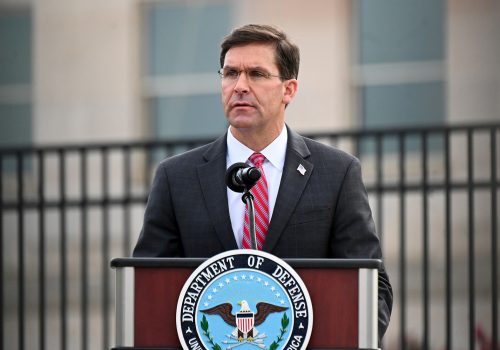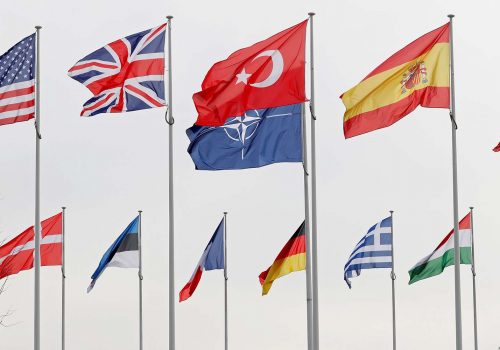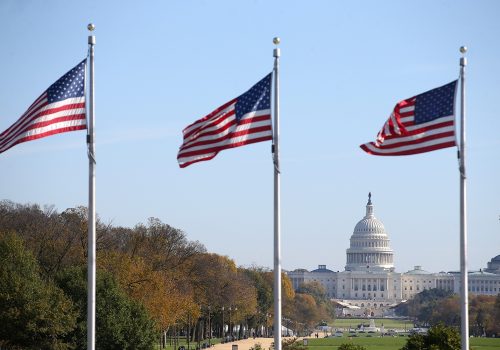FAST THINKING: How Tony Blinken sees America
JUST IN
Joe Biden is reportedly about to make his first major foreign-policy move by announcing that he’ll nominate Tony Blinken, his longtime advisor and a veteran of the Clinton and Obama administrations, as secretary of state. To observers like the Atlantic Council’s Josh Lipsky, the selection amounts to “a signal to the world that America is back.” To answer the big questions about who Blinken is and how he might serve in the role, we turned to Dan Fried, a former US ambassador who spent forty years in the foreign service and has known Blinken for decades.
TODAY’S EXPERT REACTION COURTESY OF
- Dan Fried (@ambdanfried): Former US ambassador to Poland and special assistant for Presidents Clinton and Bush, and Weiser family distinguished fellow at the Atlantic Council
Where’s Blinken coming from on foreign policy?
- A telling story Blinken likes to recount: “Biography is not destiny, but it can provide clues. Tony Blinken has told the story of how his stepfather, Samuel Pisar, a Polish-born Jew and survivor of the Holocaust, met America. Pisar was a skinny teenager who escaped from a forced march of slave laborers in Germany in the spring of 1945 and suddenly saw a column of US tanks on the road. He waved and said something like, ‘God bless America.’ A tank stopped, a US soldier in the turret, African-American, saw the kid by the side of the road and reached down and lifted him up and into the tank—as Tony put it, ‘into America.’ Tony tells that story with conviction.”
- America’s story is personal for him: “There are lots of Americans, including in my own family, for whom the United States provided refuge from tyranny and a chance of life. For them, and I suspect for Tony, America as a beacon of liberty is not cant but either lived or family memory. America living by its best values—as a country dedicated to the proposition that all are created equal—has been and remains a life-or-death proposition for millions of people.”
Subscribe to Fast Thinking email alerts
Sign up to receive rapid insight in your inbox from Atlantic Council experts on global events as they unfold.

Do these views come through in his work?
- What informs his thinking: “I’ve worked with Tony Blinken since the Clinton administration. I’ve never told him this, but I suspect his foreign-policy thinking is derived from his sense of America’s identity as a country of values, a country that could lift his refugee stepfather right into America, and a country that knew that the advance of its values and interests were somehow linked.”
- Idealism versus realism: “Tony is no ideologue or idealist. He combines a deep commitment to values with a canny sense of the possible. He is realistic, as any experienced policy person must be, about the chances of getting anything done at a given moment. (Hint: The chances are usually less than you think.) As a foreign-policy practitioner, he’s fine with incrementalism, compromise, half-steps forward, and all the rest of messy reality. But he doesn’t lose sight of what larger goals are at stake or of policy’s larger purposes.”
How will all this translate into policy?
- Clarity about allies and adversaries: “Tony is apt to mean it when he speaks of America’s alliances with fellow democracies, and when he speaks (and acts) to push back against Putin’s aggression and for a united Europe.”
- More Albright than Obama: “In core views, Tony may be closer to Madeleine Albright (for whom America is also a personal beacon of liberty) than to the cooler outlook Obama brought to America’s foreign-policy purposes.”
With Blinken as top diplomat, what immediate steps do you expect the Biden administration to take?
- A return to US values: “Some elements of Biden’s foreign approach already announced—an emphasis on rebuilding America’s alliances, especially with Europe, and bringing together the world’s democracies from all continents to deal with aggressive authoritarian powers—follow from Tony’s past record and probably reflect his input. First steps? To put America on the side of our core values.”
Further reading
Mon, Nov 9, 2020
FAST THINKING: Trump fires his defense secretary
Fast Thinking By
Two days after losing his bid for re-election, President Trump has removed Mark Esper, whose run as defense secretary was marked in its final stages by his defiance of Trump—on the idea of sending US troops to quell protests against police brutality and even on the question of wearing masks during the pandemic. How will his departure contribute to the post-election tumult? And is his successor likely to push back against the president?
Sun, Nov 8, 2020
FAST THINKING: How Europe will react to a Biden presidency
Fast Thinking By
While many European leaders may hope for a smoother relationship with President-elect Joe Biden—compared to a rocky four years with President Donald Trump—will both sides of the Atlantic be able to smooth over their differences?
Thu, Nov 5, 2020
FAST THINKING: The US election’s implications for allies and adversaries
Fast Thinking By
We don’t yet know the winner of the US presidential race—and, with the count so close and the prospect of contested results, we might not for some time, but the world is already drawing lessons from the outcome. So what are the likely takeaways in foreign capitals right now?
Image: REUTERS/Jonathan Ernst/File Photo


